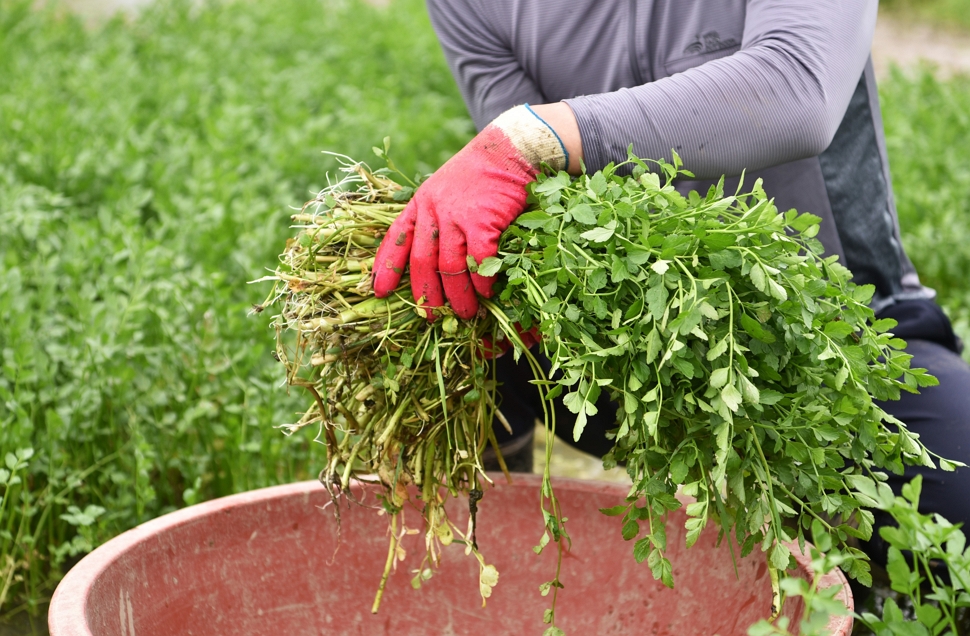Ask Us about Korea: Minari
Date May 07, 2021
 Minari. Courtesy of The Korea Times
Minari. Courtesy of The Korea Times
Q. After Youn Yuh-jung won the Oscar for best supporting actress for her role in “Minari,” interest in the film and its title have grown. What exactly is minari?
A. Lee Isaac Chung’s award-winning film is named after a hearty herb that is common in Korea and serves to symbolize the spirit and will of Korean immigrants. The planted minari seeds also connect the immigrant family to their homeland.
In the past, the earliest minari harvests came at the end of February and were referred to as great “spring namul (vegetable) delicacies.” Thanks to advances in agricultural technology, the herb, which belongs to the genus water dropwort, is now available year round.
The “mi” in the name means “water,” and, not surprisingly, minari is found in Korea’s marshlands out in the wild. Although minari appears similar to the American or European watercress, it has a more powerful, refreshing and herbal flavor.
Since the Goryeo Dynasty (918-1392), minari has played a unique part in Korea’s culinary landscape both as a main ingredient and savory addition to complete a dish. It can be made into the side dish muchim, pan-baked jeon or fermented kimchi. It can also be added to spicy fish stews, soups and bibimbap. Many often say that eating grilled minari with grilled pork samgyeopsal is an essential culinary rite for Koreans in the spring.
But minari is much more than just an ingredient as it has been known for its medicinal qualities. Rich in vitamins, calcium and other nutrients, it is believed to help relieve fevers and high blood pressure and serve as a detoxifying agent in juices.
**Ask Us about Korea is a Q&A section about Korea and Korean culture. If you have any questions about those topics, please send us an email. We’ll choose one of the questions sent by our readers and answer it in this section.**

The Ministry of Culture, Sports and Tourism's "Korea Here & Now" work can be used under the condition of "Public Nuri Type 1 (Source Indication)."




